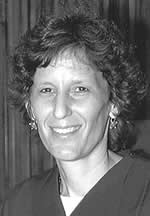As the Clinton email brouhaha has demonstrated, the discovery process in civil litigation often uncovers government secrets and documents which otherwise escape public scrutiny from virtually any other method. In Denver, residents have often been mystified and confused how real estate projects actually get approved by Denver City Council even when overwhelmingly opposed by residents.
In theory the process is supposed to work as follows. A project is submitted to the Denver Community and Development Department whose staff gives a thorough review to be sure it complies with all applicable zoning and planning requirements. The staff is headed by a scrupulously honest professional and experienced executive director who gives a sharp eye to any requests for rezoning, variances or waivers. The community then gets its chance at a public hearing. A wholly citizen 11 person Planning Board is supposed to advise the mayor and the City Council on land use matters including planning and zoning. After the citizen Planning Board gives its recommendations concerning the project it proceeds to the City Council. The individual council members are supposed to be impartial judges acting in a “quasi-judicial” capacity. What they know about the development project is supposed to be what is summed up in the publicly available reports of the Planning Board and what they are told the night of the hearing including the comments of the developer and the members of the community.
Nothing of what is outlined above actually happens in Denver. The “cone of silence” between the City Council members and developer of a project and opponents to that project only occurs once a project has actually been submitted to the Denver Community and Development Department. Thus developers first fill the campaign coffers of the applicable council member. The developer then sits down with the applicable council member and gets his/her approval and any changes the council member may want, all before the public even knows there is a project. Once the project is filed is often the first time residents have heard of the project. But their council member then refuses to meet with them saying it would be legally improper for him or her to discuss a submitted projected as they are required by law to be wholly impartial and prohibited by law from meeting with citizens ex parte.
Thus projects are submitted by savvy developers to the Denver Community Planning and Development Department only after the fix is already in. The Executive Director of the Denver Planning Department is Brad Buchanan, an architect turned developer of whom it is often said is wholly void of any ethics or personal propriety. The 11 member citizen Planning Board has been stacked by Mayor Hancock with pro-developer advocates who almost never pay any heed to anything the residents of affected neighborhoods have to say at their public meetings.
The night comes for the City Council to consider a crooked project and the citizens actually get to, in theory, address the City Council themselves. Unbeknownst to many citizens the Denver City C ouncil over 30 years ago secretly adopted the so-called “courtesy zoning rule” whereby they will all (or almost all for sake of appearances) vote exactly the same as the council member whose district a project is in. This allows the savvy developer to save a great deal of money only having to convince/bribe a single council member while members of the public erroneously think they must have to convince a majority of the City Council.
ouncil over 30 years ago secretly adopted the so-called “courtesy zoning rule” whereby they will all (or almost all for sake of appearances) vote exactly the same as the council member whose district a project is in. This allows the savvy developer to save a great deal of money only having to convince/bribe a single council member while members of the public erroneously think they must have to convince a majority of the City Council.
Of course it takes months for a project to go from submission to the Planning Department to the night of City Council consideration. Economics and other facts change over time. The developer needs to get the council member whose district the project is in to do him additional favors and considerations during this time period concerning his project. But the “cone of silence” rule that keeps the public at bay from the council member legally applies equally to the developer and his lobbyists.
What does the savvy developer and the bought and paid for council member do? The citizens who brought the lawsuit captioned Whitelaw v. The Denver City Council 2015cv032427 in Denver District Court concerning the City Council’s approval of the Mount Gilead project at Crestmoor found out through legal discovery. The answer is, of course, they cheat.
The very high density apartment project was wildly unpopular and required a rezoning in apparent direct contradiction with the city’s master plan called Blueprint Denver. Close coordination between the developer and the key Councilwoman Mary Beth Susman was apparently deemed necessary no matter how illegal. The plaintiffs in discovery demanded all correspondence including e-mails between the council-woman and the developer or its lobbyists post the filing of the project with the Planning Department. The response — not a thing, nada.
The lawyers for the residents, Gibson, Dunn & Crutcher, however, wondered what was good for former Secretary of State Hillary Clinton might be good enough for Councilwoman Susman, i.e. a private email account on which public business would be conducted free from public open records requests and scrutiny. With some incredible legal sleuthing the lawyers found out that Susman did in fact have a separate Gmail account on which city business was conducted. The Denver City Attorney’s Office already accused and shown to have been engaged in unethical conduct regarding the Denver Jail lawsuits decided not to risk their law licenses and this time produced the voluminous e-mail correspondence post project filing between the councilwoman and the developers’ lobbyists directly concerning the Mount Gilead project.
The lawsuit is in front of Denver District Court Judge Shelly I. Gilman. If she is half the jurist that Federal District Court Judge John Kane is, who oversaw the Denver Jail lawsuits, heads will roll. It is highly unlikely that Ms. Susman is the only city council member who has engaged in such apparent illegal conduct. It will be the job of Judge Gilman to follow the ancient Roman maxim of law “Fiat Justitia Ruat Caelum” — “Let Justice Be Done Though the Heavens Fall.”
— Editorial Board

